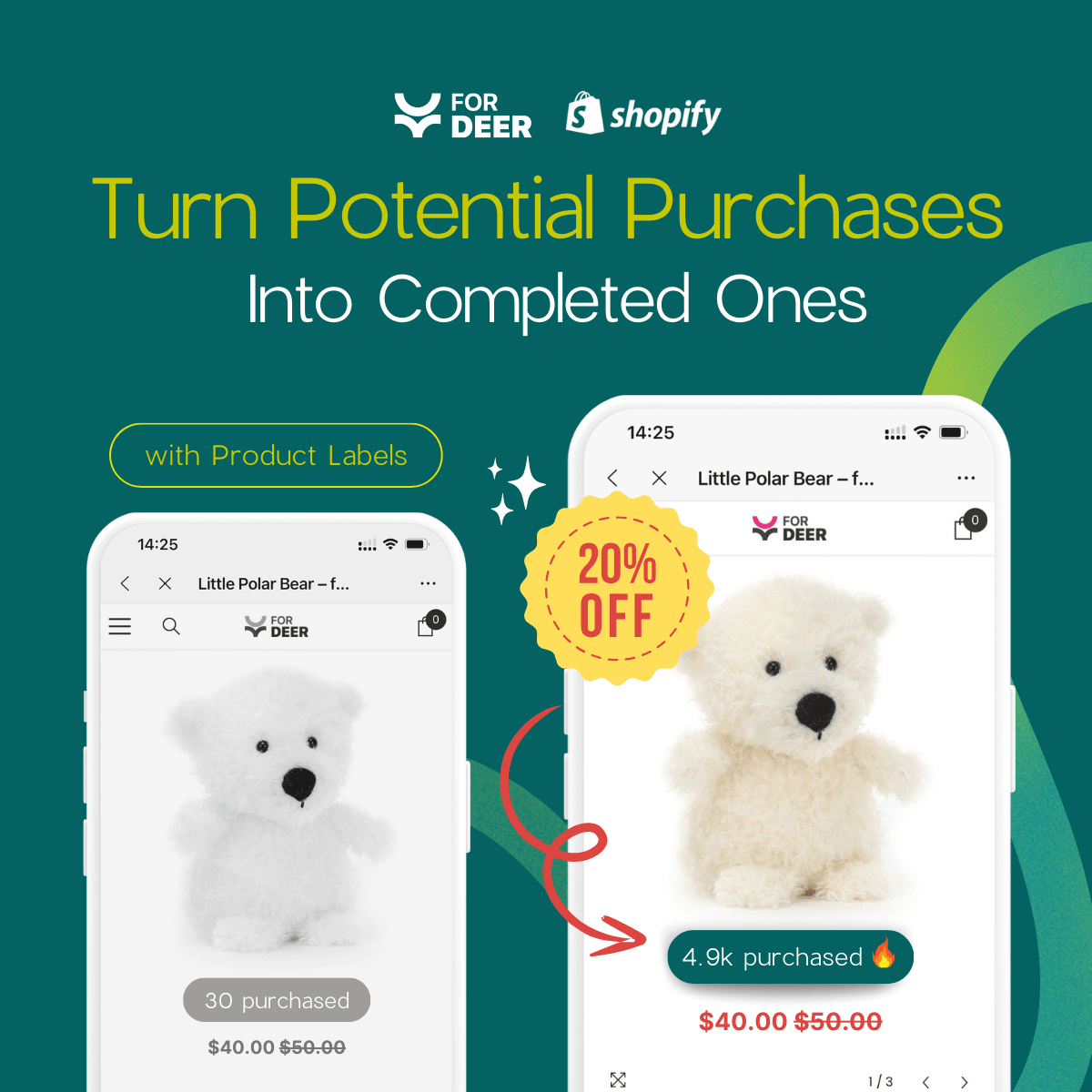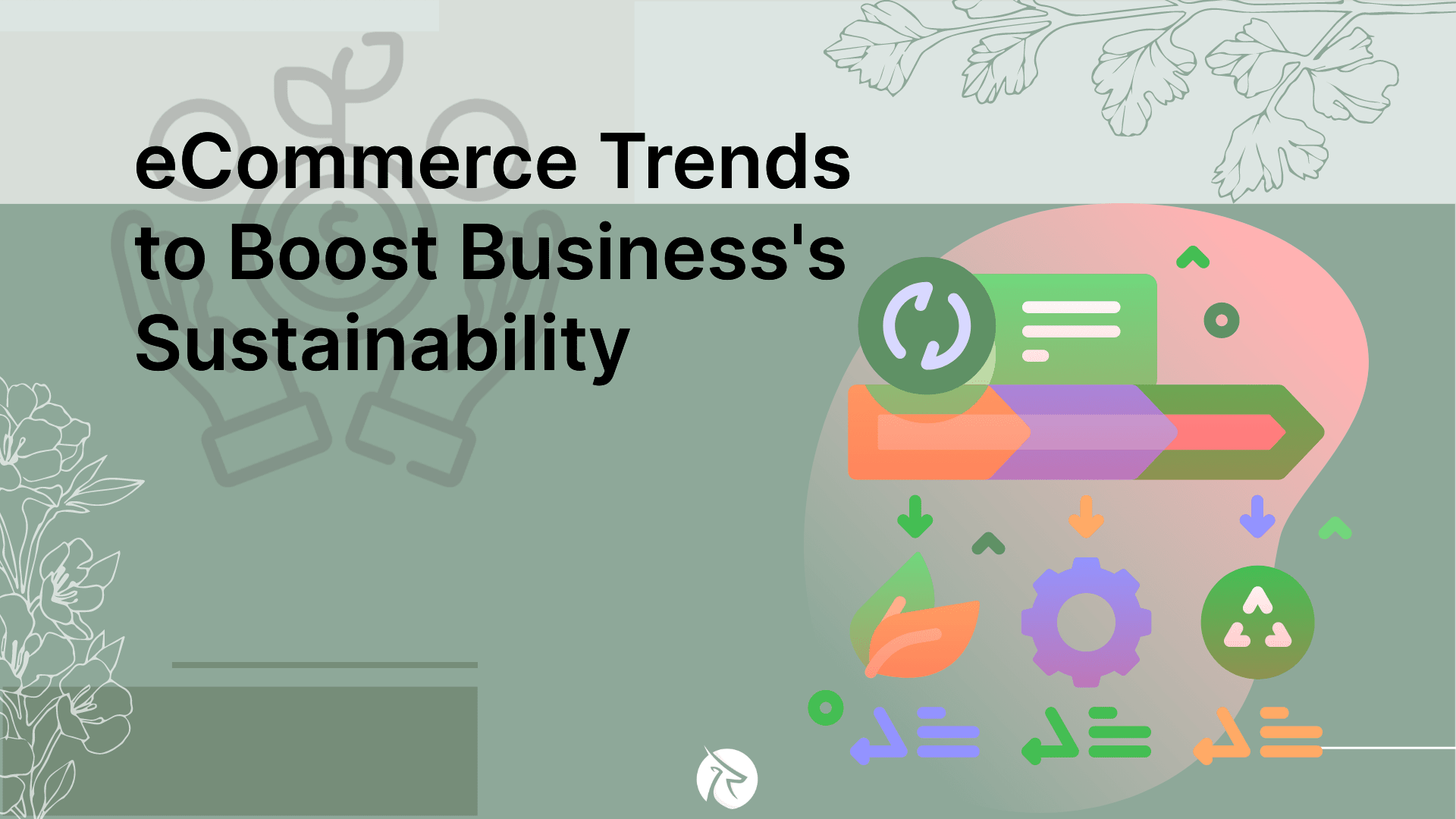Marketing for B2B and B2C: The Differences

Understanding the nuances between Business-to-Business (B2B) and Business-to-Consumer (B2C) marketing is crucial for crafting effective strategies tailored to each domain. While both aim to drive sales and build brand loyalty, the approaches, target audiences, and key tactics greatly differ. Let's delve into the divergent strategies of B2B and B2C marketing to decode their disparities and unlock success in both realms with the Fordeer Team!
Overview of Marketing for B2B and B2C Businesses
Understanding B2B business

B2B, an abbreviation for Business-to-Business, encapsulates a realm where businesses primarily serve other businesses as their clientele. This distinctive dynamic underscores a tailored approach to marketing, where every effort is directed towards meeting the unique needs, interests, and challenges of customers who make purchases on behalf of their organizations rather than for personal consumption. Let's explore a few vivid examples showcasing B2B in action:
Revolutionizing talent acquisition
You can imagine a cutting-edge recruitment software service that revolutionizes the hiring landscape. This innovative solution isn't designed for individual job seekers; instead, it targets HR departments, equipping them with sophisticated tools to streamline talent acquisition processes and enhance workforce management.
Crafting inspiring workspace solutions
You can envision an esteemed interior design agency specializing in crafting captivating office spaces. Their expertise isn't limited to residential projects; rather, they excel in curating functional and aesthetically pleasing work environments tailored to meet the unique needs of corporate clients, thereby fostering productivity and enhancing employee satisfaction.
Empowering marketing endeavors
You can consider a comprehensive marketing software service offering a myriad of essential tools to elevate marketing efforts. From robust content strategy frameworks to SEO optimization, social media management, and lead-generation solutions, this service caters exclusively to marketing departments striving to amplify their brand presence and drive tangible results. (Perhaps reminiscent of a certain product we are familiar with?)
Understanding B2C business
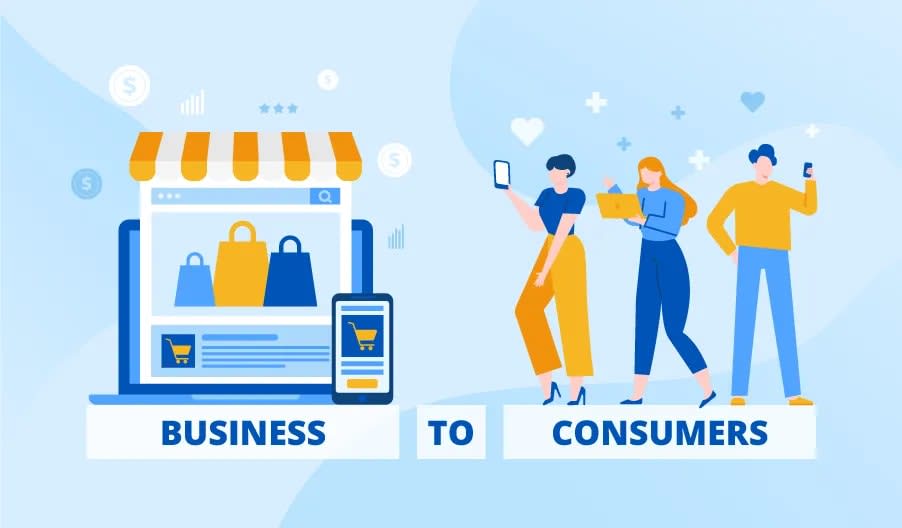
B2C, an acronym for Business-to-Consumer, characterizes businesses whose primary clientele consists of individual consumers rather than professional buyers. In this realm, marketing endeavors are meticulously tailored to address the diverse needs, interests, and challenges encountered in people's everyday lives. Let's delve into a few vivid examples illustrating B2C in practice:
Revolutionizing oral care
You can envision an innovative oral care company dedicated to enhancing dental hygiene. From toothbrushes and toothpaste to mouthwash, their product line caters directly to individuals seeking optimal oral health solutions for themselves and their families.
Navigating the real estate landscape
Picture a reputable real estate agency specializing in residential properties. Whether it's renting cozy apartments, selling dream homes, or assisting students in finding suitable accommodations, their services are tailored to meet the diverse needs and aspirations of individual clients.
Harmonizing the world of music
Imagine a dynamic music platform offering premium music-streaming subscriptions. With an extensive library of tunes spanning various genres, this service caters to individuals seeking immersive auditory experiences and personalized playlists to soundtrack their lives.
Where B2B and B2C intersect
The demarcation between the B2B and B2C realms isn't always rigid. It's quite common for companies to engage in both B2B and B2C initiatives concurrently.
Consider, for instance, an interior design agency tasked with crafting inspiring office spaces for businesses (a B2B service), yet also adept at designing select rooms within residential homes for individual homeowners (a B2C service). Similarly, an oral care company renowned for offering toothbrushes, toothpaste, and mouthwash directly to consumers (a B2C service) may also extend its product line to supply these essentials to dental practices and clinics (a B2B service).
In instances where the distinction between a B2B and B2C company blurs, such as the examples mentioned above, it becomes imperative to scrutinize their respective marketing strategies. And indeed, they often diverge in several key aspects.
B2B and B2C marketing strategies diverge primarily concerning their target audiences and communication methodologies. While B2C marketing emphasizes swift solutions and engaging content to appeal to individual consumers, B2B marketing prioritizes fostering enduring relationships and demonstrating a product's tangible return on investment for business clientele.
The Differences of Marketing for B2B and B2C Businesses
B2B vs. B2C marketing: Audience persona and decision-making process

Marketing for B2B
B2B marketing endeavors are geared towards businesses as their clientele. Decision-making processes within this domain often entail the input of various stakeholders, ranging from executives and managers to procurement professionals. Within this landscape, marketing strategies pivot around furnishing comprehensive information, accentuating the inherent value proposition, and cultivating enduring relationships.
In the realm of B2B marketing, the emphasis lies on delivering nuanced insights and solutions that resonate with the intricate needs of corporate entities. Through targeted messaging and strategic communication channels, businesses aim to instill confidence in their offerings and establish themselves as trusted partners in the eyes of their clientele. This entails a concerted effort to not only address immediate requirements but also to anticipate and adapt to evolving industry dynamics, thereby fostering long-term collaborative alliances.
Marketing for B2C
In the realm of B2C marketing, the spotlight shines on catering directly to individual consumers. Here, decision-making tends to sway more towards impulse and emotion, underscoring the importance of delving deep into consumer demographics, preferences, and behaviors.
In this dynamic landscape, understanding the intricacies of consumer demographics becomes paramount, serving as a compass for guiding marketing endeavors. By deciphering consumer preferences and behaviors, businesses can tailor their strategies to resonate effectively with their target audience.
At the heart of B2C marketing lies the art of creating emotional connections. By tapping into the desires and aspirations of consumers, brands can forge meaningful relationships that transcend mere transactions. This emphasis on emotional resonance lays the foundation for fostering loyalty and advocacy among consumers.
Moreover, B2C marketing thrives on the principle of offering immediate gratification. Whether it's through seamless shopping experiences, personalized recommendations, or compelling promotions, businesses aim to fulfill consumers' needs and desires promptly.
B2B vs. B2C marketing: Content and messaging

Marketing for B2B
Content takes on a distinct character, often characterized by its depth, technicality, and educational value. Tools such as whitepapers, case studies, and industry reports serve as pillars, enabling businesses to showcase their expertise and provide targeted solutions to address specific pain points encountered by their clientele.
These meticulously crafted pieces of content not only demonstrate proficiency but also serve as valuable resources for businesses seeking insights and guidance in navigating complex industry landscapes. Moreover, they play a pivotal role in establishing credibility and trust among potential clients.
Central to the messaging in B2B marketing is the emphasis on tangible outcomes such as return on investment (ROI), operational efficiency, and addressing intricate business challenges. Through nuanced communication, businesses endeavor to illustrate how their offerings can deliver measurable value, streamline processes, and ultimately drive sustainable growth for their clients.
Marketing for B2C
Content exudes an irresistible allure, blending visual appeal, emotional resonance, and succinctness to captivate audiences. Through the art of storytelling, user-generated content, and leveraging social proof, brands wield powerful tools to forge deep connections with consumers.
Picture this: compelling narratives unfold, inviting individuals on immersive journeys that transcend mere transactions. User-generated content adds an authentic touch, showcasing real-life experiences and fostering a sense of community among consumers. Meanwhile, social proof serves as a beacon of trust, affirming the value and credibility of products or services.
At the heart of B2C messaging lies a tapestry of lifestyle aspirations and emotional gratification. Brands craft narratives that resonate with the desires and aspirations of their target audience, weaving a narrative thread that seamlessly integrates their offerings into consumers' lives. Whether it's the promise of adventure, the pursuit of wellness, or the allure of luxury, B2C messaging strikes a chord with the emotional benefits inherent in the product or service.
B2B vs. B2C marketing: Marketing channels
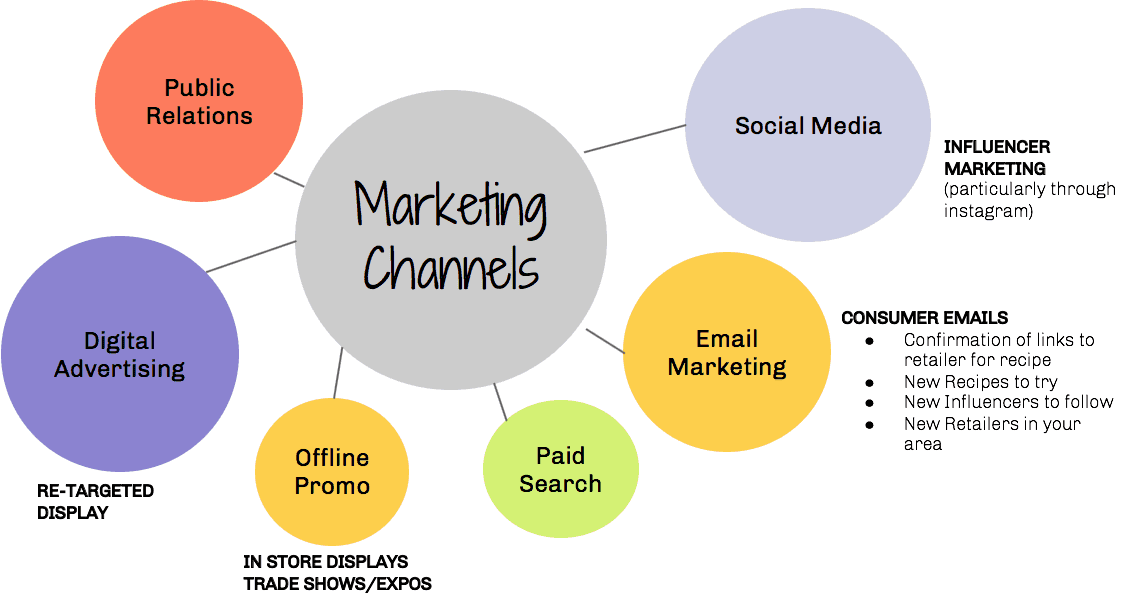
Marketing for B2B
In the realm of B2B marketing, various channels serve as conduits for reaching and engaging with business clientele. These channels encompass a spectrum of platforms tailored to professional interactions and industry-specific communication. Let's explore a few prominent avenues:
- Professional networking platforms: Platforms like LinkedIn stand as virtual hubs where professionals converge to network, share insights, and explore opportunities. Leveraging these platforms enables B2B marketers to establish thought leadership, forge valuable connections, and showcase their expertise to a targeted audience of industry peers and potential clients.
- Industry-specific publications: Industry publications serve as reservoirs of specialized knowledge and trends within specific sectors. By strategically placing content or advertisements in these publications, B2B marketers can amplify their visibility among key stakeholders, position their brand as an authority, and capture the attention of decision-makers seeking relevant solutions.
- Email marketing: Email remains a cornerstone of B2B communication, offering a direct and personalized channel for engagement. Through targeted email campaigns, marketers can deliver tailored content, nurture leads, and facilitate meaningful interactions with prospects and clients. Thoughtful segmentation and automation further enhance the effectiveness of email marketing efforts.
- Targeted advertising: Precision-targeted advertising enables B2B marketers to reach specific audiences across digital platforms with tailored messaging. Whether through search engine marketing, display ads, or social media advertising, targeted campaigns ensure that promotional efforts resonate with the needs and interests of discerning business professionals, driving customer engagement and conversion rates.
- Events, webinars, and conferences: In-person and virtual events play a pivotal role in B2B marketing, fostering opportunities for networking, knowledge sharing, and lead generation. From industry conferences and trade shows to webinars and workshops, these events provide platforms for showcasing products, conducting demonstrations, and nurturing relationships with prospects and clients.
Marketing for B2C
In B2C marketing, vibrant engagement unfolds across popular social media platforms like Instagram, Facebook, and TikTok. Leveraging dynamic strategies, brands forge impactful connections through influencer collaborations, user-generated content initiatives, and immersive interactive campaigns. Additionally, e-commerce platforms serve as bustling hubs for consumer transactions, complemented by strategic placements on search engines and seamless integration into mobile apps. These diverse channels converge to create a rich tapestry of opportunities for reaching and captivating consumers in their digital habitats.
B2B vs. B2C marketing: Sales cycle and relationship building
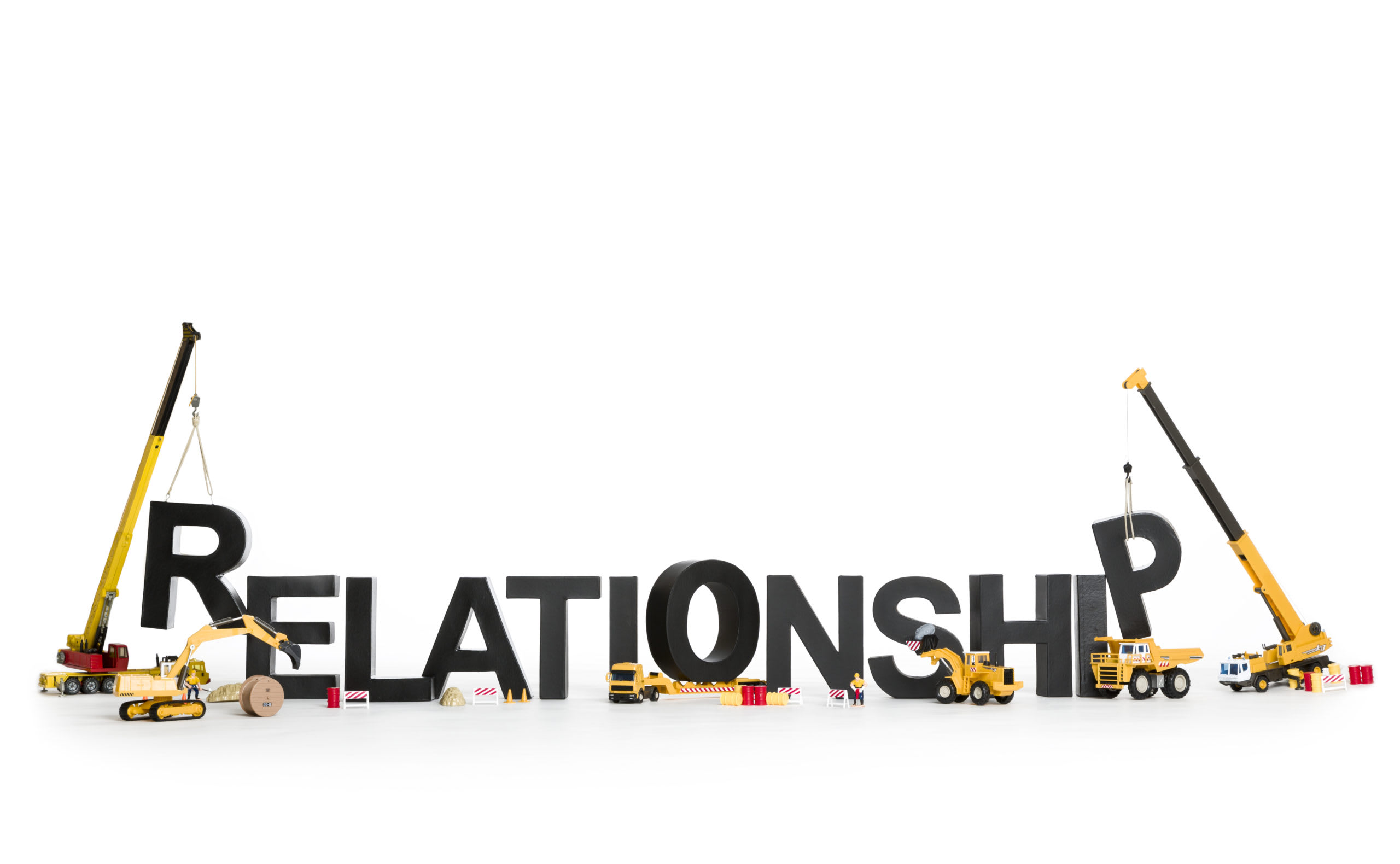
Marketing for B2B
It's common to encounter longer sales cycles characterized by multiple touchpoints. At the heart of this process lies the essence of relationship-building and lead nurturing, which are paramount for success. Establishing and maintaining trust through personalized communication, diligent follow-ups, and attentive after-sales support are indispensable practices that pave the way for securing lucrative deals. In essence, the journey from initial contact to final transaction is marked by a commitment to fostering enduring partnerships grounded in mutual understanding and value delivery.
Marketing for B2C
In B2C, sales cycles exhibit a spectrum ranging from spontaneous impulse buys to more prolonged consideration periods. Here, the emphasis is placed on facilitating swift transactions and ensuring seamless user experiences. Whether it's the convenience of a one-click purchase or the intuitive navigation of an e-commerce platform, the goal is to streamline the buying process, catering to the immediacy often associated with consumer behavior.
Central to the success of B2C endeavors is the cultivation of brand loyalty. This entails implementing strategies such as loyalty programs, rewards systems, and delivering exceptional customer service. By offering incentives for repeat purchases and fostering positive interactions at every touchpoint, businesses can forge enduring connections with their clientele, encouraging them to return time and again.
Overview,
In conclusion, while B2B and B2C marketing share common objectives, their strategies diverge significantly due to the distinct nature of their target audiences, decision-making processes, and purchasing behaviors. By understanding these differences and tailoring strategies accordingly, businesses can effectively navigate both realms, maximize their marketing efforts, and achieve sustainable growth and success.
Stay tuned with the Fordeer Team to get our latest updates!



